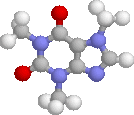

| Strona główna |
| Zespół |
| Badania |
| Aparatura |
| Seminaria |
| Publikacje |
|
Nasze konferencje |
|
Aktywność konferencyjna |
| Projekty |
| Programy |
|
Najbliższe wydarzenia |
| Linki |
| Kontakt |
|
|
|
od 2020-09-20 |

Authors: Matuła K., Richter Ł., Janczuk-Richter M., Nogala W., Grzeszkowiak M., Peplińska B., Jurga S., Wyroba E., Suski S., Bilski H., Silesian A., Bluyssen H.A.R., Derebecka N., Wesoły J., Łoś J.M., Łoś M., Decewicz P., Dziewit Ł., Paczesny J., Hołyst R. |
Title: Phenotypic plasticity of Escherichia Coli upon exposure to physical stress induced by ZnO nanorods |
Source: Scientific Reports |
Year : 2019 |
Evolution of bacteria to selective chemical pressure (e.g. antibiotics) is well studied in contrast to the influence of physical stressors. Here we show that instantaneous physical stress in a homogeneous environment (without concentration gradient) induces fast adaptation of Escherichia coli. We exposed E. coli to a large number of collisions of around 10(5) per bacterium per second with sharp ZnO nanorods. The pressure exerted on the bacterial cell wall was up to 10 GPa and induced phenotype changes. The bacteria's shape became more spherical, the density of their periplasm increased by around 15% and the average thickness of the cell wall by 30%. Such E. coli cells appeared almost as Gram-positive bacteria in the standard Gram staining. Additionally, we observed a combination of changes occurring at the genomic level (mutations identified in form of single nucleotide polymorphisms) and downregulation of expression of 61 genes encoding proteins involved in beta-oxidation of fatty acids, glycolysis, the citric acid cycle, as well as uptake of amino acids and enzyme cofactors. Thus, we show that bacteria undergo phenotypic changes upon instantaneous, acute physical stress without any obviously available time for gradual adaptation. |
|
|
Zaktualizowano: podstrony 2021-06-21 / bazę danych: 2024-11-02 by Webmaster: Zbigniew Fojud